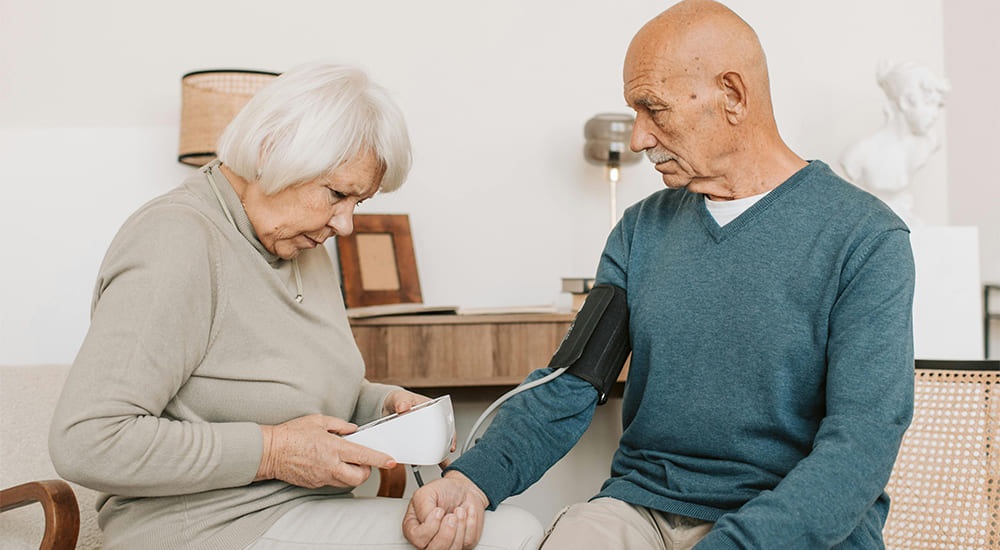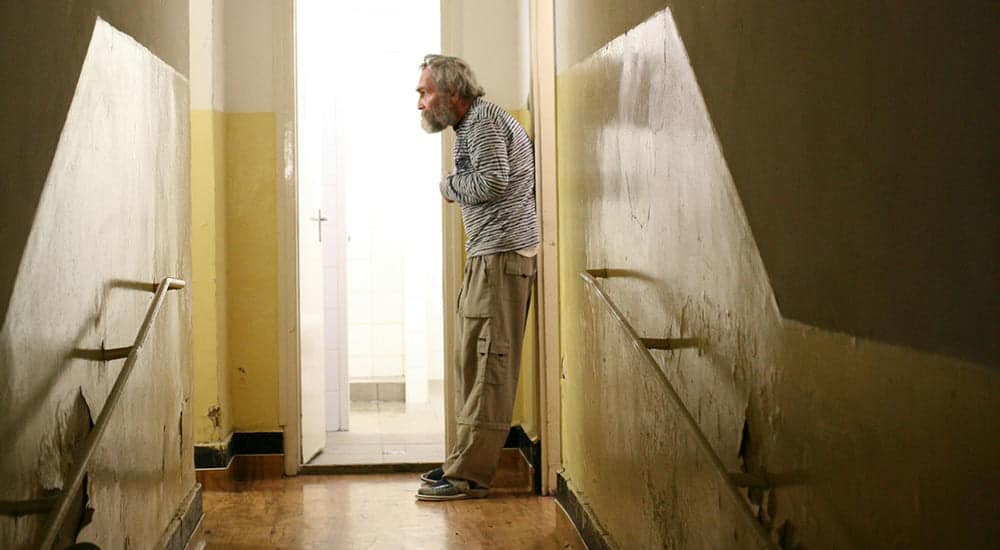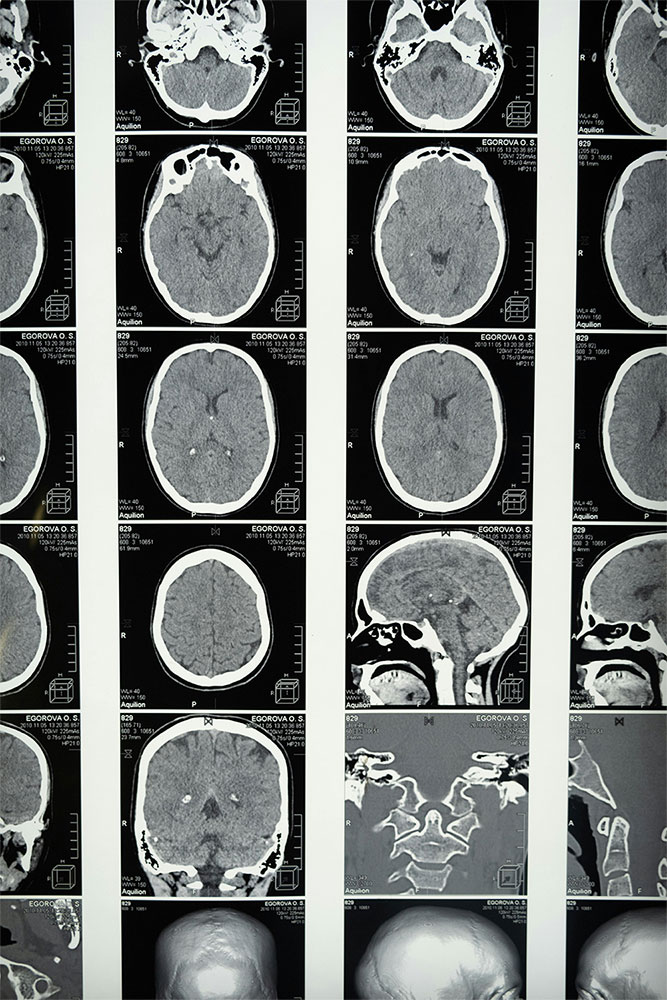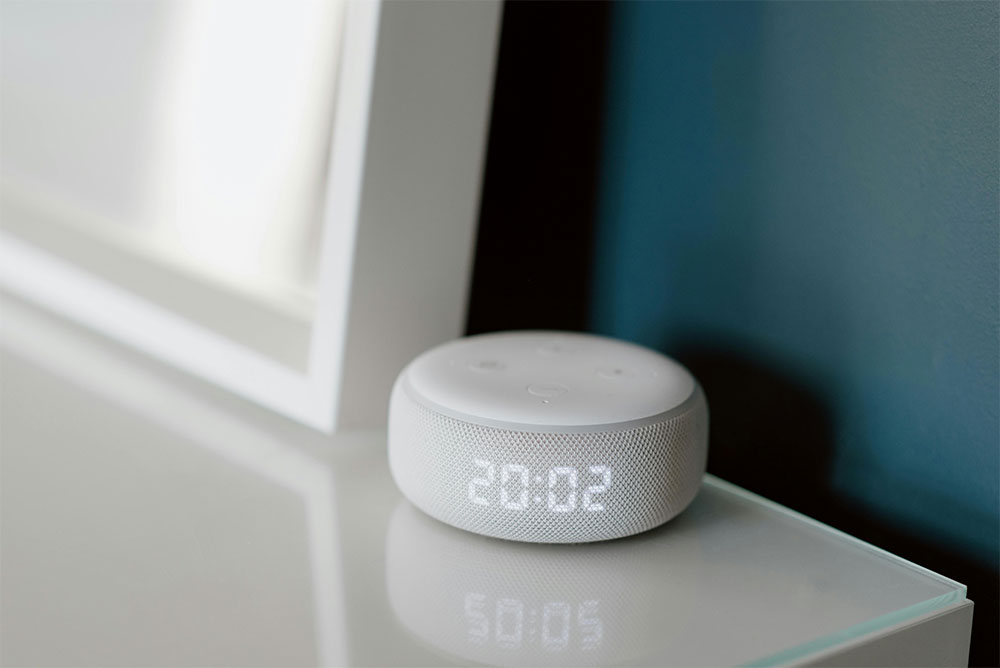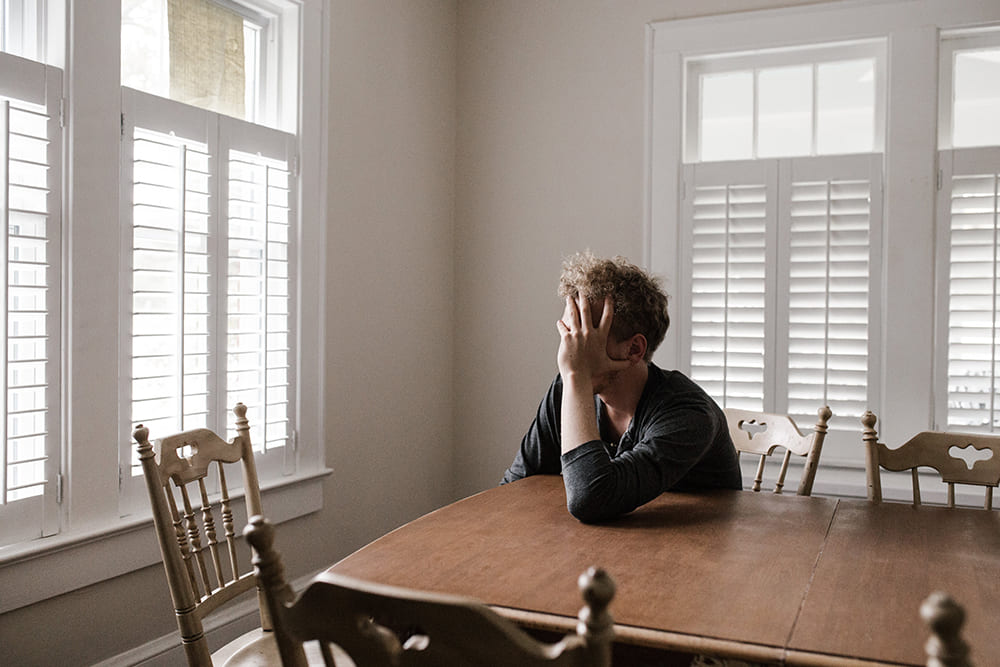Understanding why dementia patients experience excessive sleeping is imperative for families and caregivers. The significant impact of changing sleep patterns on quality of life and daily routines is common among individuals with dementia and Alzheimer’s. Therefore, further research in this area is necessary to establish preventive strategies for excessive sleeping, ultimately improving the overall well-being of everyone involved. By exploring the various factors that contribute to dementia patients sleeping longer, we can develop effective methods to address this issue.
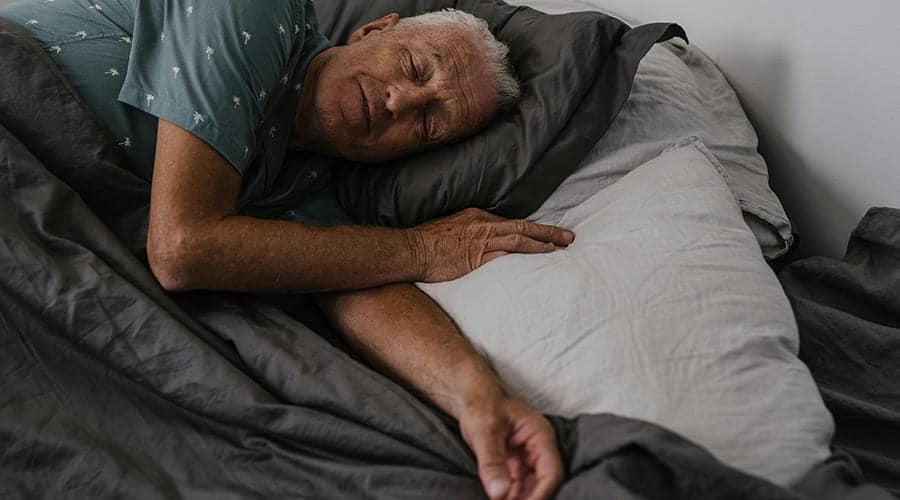
Christopher Ravn
Key Takeaways
1. Excessive sleep in dementia patients is influenced by a combination of physiological, neurological, and environmental factors, including disruptions to the sleep-wake cycle, medication side effects, and environmental stimuli.
2. Dementia leads to disruptions in the circadian rhythm, resulting in nighttime restlessness, daytime drowsiness, and conditions like insomnia and sleep apnea. Sundowning, characterized by confusion and agitation in the evening, is common among dementia patients.
3. As dementia progresses, excessive sleepiness becomes more pronounced, particularly in the later stages of the disease. Biological and neurological changes, such as the buildup of abnormal proteins in the brain, contribute to disrupted sleep patterns and increased sleep duration.
Table of Contents
1. Why Do Dementia Patients Sleep So Much?
2. What Changes Occur In Sleep Patterns Due To Dementia?
3. What Stage Of Dementia Is Sleeping All The Time?
4. Is It Normal For Dementia Patients To Sleep A Lot?
5. How To Prevent A Dementia Patient Sleeping All Day
6. How Daytime Activities Influence Nighttime Sleep In Dementia Patients
7. At What Stage Do Alzheimer's Patients Sleep A Lot?
8. Excessive Sleepiness In Elderly With Dementia
9. Are Sleep Medications Necessary In Dementia Care?
10. Frequently Asked Questions About Why Do Dementia Patients Sleep So Much
Why Do Dementia Patients Sleep So Much?
A multitude of factors stemming from physiology, neurology, and the environment contribute to the prolonged sleep patterns observed in dementia patients. From a physiological standpoint, dementia disrupts sleep patterns by interfering with the brain’s regulation of the sleep-wake cycle. Neurological differences show a direct correlation between the quality and quantity of sleep, such as when the brain exhibits an increase in beta-amyloid plaques and tau protein tangles.
Pharmaceuticals commonly prescribed to manage dementia symptoms can also contribute to excessive sleep as a side effect. Many drugs, including antidepressants, antipsychotics, and sedatives, caution users about drowsiness and disruptions to sleep patterns.
Additionally, the sleep behaviors of dementia patients are greatly influenced by their environment. Creating a comfortable and secure environment, maintaining calm and regular routines, and providing familiar surroundings are crucial in alleviating restlessness and agitation while promoting positive sleep practices.
Understanding these complex factors is important for caregivers to effectively address excessive sleep in individuals with dementia. By taking appropriate actions to improve the quality and ease of sleep, caregivers can significantly enhance the quality of life for both dementia patients and their caregivers.
What Changes Occur In Sleep Patterns Due To Dementia?
Any disruption to the normal sleep-wake cycle can lead to numerous sleep disturbances, with dementia being a significant factor that negatively impacts a patient’s sleep. The circadian rhythm, or the body’s internal clock responsible for regulating the sleep-wake cycle, begins to deteriorate as the disease progresses. This deterioration makes it challenging for dementia patients to achieve a healthy amount of sleep at regular intervals, resulting in daytime drowsiness and inconsistent sleep patterns.
When the circadian rhythm is disrupted, dementia patients often struggle to fall asleep or stay asleep, leading to nighttime restlessness and increased drowsiness and daytime sleepiness. This reversal of the sleep cycle is known as sundowning, a phenomenon characterized by confusion and agitation commonly experienced by dementia patients.
The main types of sleep disturbances experienced by dementia patients include insomnia, marked by difficulty falling asleep or staying asleep, and sleep apnea, characterized by interrupted breathing during sleep. These disturbances, when present, contribute to a poor quality of life not only for the dementia patient but also for their caregivers. Therefore, taking steps to improve sleep patterns in patients should be a central focus in the management and care of individuals affected by dementia.
What Stage Of Dementia Is Sleeping All The Time?
The onset of sleep disruptions or excessive sleepiness in dementia patients can occur at different stages of the disease for various reasons, not limited to those already mentioned, but it becomes more pronounced as the disease progresses. However, the duration of excessive sleepiness, specifically pertaining to sleeping excessively throughout the day, becomes more prevalent in the later stages of dementia, typically observed in stage 6 or 7, when patients exhibit a significant decline in cognitive abilities and pronounced dysfunction in performing daily tasks.
Extended daytime drowsiness, an inability to engage in activities, frequent episodes of nodding off, difficulty maintaining attention, and frequent napping during the day are clear indicators of dementia patients transitioning towards increased sleep. Moreover, this creates a vicious cycle of declining physical activity and reduced cognitive stimulation, leading to a lack of energy to stay awake, thus causing dementia patients to sleep excessively throughout the day.
Caregivers should be aware that the type of dementia experienced can cause varied sleep patterns. Dementia patients do not all experience the same form of sleep disturbances. For example, aside from excessive daytime drowsiness and sleeping, those with Lewy body dementia may also experience vivid dreams or hallucinations while asleep. Understanding these variations is crucial in assisting healthcare professionals and caregivers in creating a more comprehensive management plan tailored to the individual sleep issues of dementia patients.
Is It Normal For Dementia Patients To Sleep A Lot?
Is it normal? Yes! Can it be helped? Also yes! Dementia patients commonly experience the need to sleep a lot, especially with the progression of this disease. In the advancing stages of dementia, patients experience greater interruptions in their sleep-wake cycle, leading to more daytime drowsiness, inattentiveness, daytime sleeping, and extended periods of unrestful sleep. The excessive sleeping, coupled with an inability to stay attentive, may be indicative of steeper cognitive decline and related malfunctions in the patient’s neurological functions.
Many biological and neurological factors contribute to the increase in sleep among patients with dementia. Among them are the disregulation of the sleep-wake cycle within the brain, changes in the levels of neurotransmitters, and alterations in the brain’s structures and functions related to sleep regulatory regions. Additionally, the buildup of abnormal proteins, primarily beta-amyloid plaques and tau tangles, within the brain has been seen to cause abnormal sleep patterns, resulting in excessive sleeping throughout the day.
With this knowledge, caregivers and healthcare professionals need to understand the fundamentals of the biological and neurological makeup causing sleep increases in patients with dementia. This understanding helps in formulating optimal management systems related to sleep issues to provide conscientious care and assistance to individuals with dementia.
Increased Sleep In Dementia Patients Can Be A Sign Of Disease Progression
Despite proactive steps taken, the increase in sleep time in dementia patients still occurs, indicating the worsening of their disease. As their disease continues to advance, individuals with dementia experience the imminent breakdown of their circadian systems, upending the sleep-wake cycle, causing sheer mental sluggishness, prolonging sleep, and depressing brain activity, resulting in drowsiness throughout the day. Thus, dementia patients may opt to try green light therapy for depression.
Various biological and neurological factors influence the lengthening of sleep cycles. Changes in neurotransmitter levels, the disregulation of the brain’s sleep-wake cycle, and the morphed structure and dysfunction of brain systems all play a part in this breakdown. Moreover, the abnormal protein buildup of beta-amyloid and tau tangles in the brain have shown a direct correlation with disruptive patterns in sleep.
Greater insight into the neurological and biological effects caused by excessive sleep is vital for healthcare professionals, caregivers, and others involved in the management of dementia patients in order to implement comprehensive interventions to address the signs of disease progression. Improving the quality of sleep by mediating disturbances to the circadian cycle will positively impact the quality of life for individuals with dementia.

How To Prevent A Dementia Patient Sleeping All Day
To prevent individuals with dementia from sleeping all day, non-pharmaceutical sleep regulation solutions need to be employed. Methods such as implementing schedules to streamline mealtimes, activities, nap times, and sleep can ensure adequate natural sunlight exposure to support the circadian rhythm and physical activities that uplift the mood, increasing daytime alertness.
Following that, a calm, soothing environment that encourages comfortable and restful sleep, away from overstimulation, distractions, and noises, should be created and reinforced with pre-bedtime activities that begin to settle the system down. Activities like reading, gentle music, and massages, which calm the nervous system, ready an individual with dementia for more quality, restful sleep. Regular communication between caregivers and healthcare professionals is paramount in curating a plan of action that will support the personalized individual needs of patients with dementia without medicative dependency for sleep optimization.
Natural Light Importance On Sleeping Patterns
Natural light is essential in maintaining a proper sleep cycle, inadequate natural light during the day interrupts the circadian rhythm making it harder for dementia patients to sleep at night. The regulation of the body’s internal clock is aided by natural light which tells it when it’s bed time or awake time.
Increasing day light exposure for dementia patients by introducing more engaging outdoor activities during day time by caregivers is imperative. Activities like visiting parks, sitting in a sunny garden spot, even keeping the curtains and blinds open during the day to increase exposure to natural light or reorganizing the living space to optimize natural day light exposure, with a sitting chair by the window or sheer curtains can be used by carers to give their dementia patients more natural light exposure.
Prioritizing natural light exposure for dementia patients helps moderate the sleep wake cycle which aids caregivers in improving the quality of sleep and increasing alertness during the day for their individuals with dementia.
Physical Activity And Sleep Quality
The quality of sleep and regulation of sleep patterns in dementia patients can be improved by regular exercise. Studies have shown that physical activity helps reduce sleep interruptions, improves the duration of sleep, and significantly enhances the overall quality of sleep. Engaging in physical activity promotes better synchronization of the body’s circadian rhythm, leading to a more consistent sleep-wake cycle. Additionally, physical activity has been found to alleviate symptoms of anxiety and depression in dementia patients, further reducing sleep disruptions. Hence, one may want to opt to try light therapy for depression to help with the sleep-wake cycle.
Physical activities can be conducted indoors or outdoors, depending on what is most conducive to the engagement of the dementia patient. Activities that focus on improving mobility and flexibility, such as gentle stretching, chair yoga, dancing, and light resistance movements, carry minimal risk of falls. Outdoor activities, such as walks in the park, gardening, and tai chi, provide additional stimulation from fresh air and natural light, promoting greater well-being and relaxation. Incorporating regular physical activities tailored to the needs, interests, and abilities of the individual with dementia is important for caregivers to improve the sleep patterns of their patients with dementia.
How Daytime Activities Influence Nighttime Sleep In Dementia Patients
Nighttime sleep is greatly affected by daytime activities, which include social interactions, leisure pursuits, and enjoyable activities. When dementia patients engage in enjoyable and stimulating daytime activities, it helps regulate their internal body clock and improves sleep-wake cycles. Choosing activities that promote physical movement, mental stimulation, and social interactions has been shown to enhance overall well-being and facilitate the regulation of sleep patterns.
We Believe Prioritizing Brain Health Enhances Your Quality Of Life
Get to know our team, our mission and how our EVY LIGHT® can provide you and your loved ones with a fuller life, letting you breathe a little easier.
At What Stage Do Alzheimer's Patients Sleep A Lot?
Sleep pattern disruptions are commonly experienced by individuals with Alzheimer’s disease at different stages, with excessive sleepiness becoming more prominent as the disease progresses, especially in stages 6 and 7. Daytime napping and nighttime wakefulness are typical results of disruptions in the sleep-wake cycle experienced during the advanced stages of Alzheimer’s.
Scientific studies have revealed a complex connection between sleep disorders and Alzheimer’s disease, with research demonstrating brain changes related to Alzheimer’s that can directly impact sleep regulation. Studies also indicate that insomnia and sleep apnea are forms of sleep disturbances more prevalent in Alzheimer’s patients, further contributing to excessive sleepiness.
Understanding the changes in sleep patterns of Alzheimer’s patients as the disease progresses is essential for caregivers and healthcare professionals to establish structured support and management systems aimed at improving the overall quality of life for both the Alzheimer’s patient and their caregivers.

Enhance your brain performance through the power of light.
Comfortable and easy to use 40Hz light therapy to support and improve your brain function.
View Our LightExcessive Sleepiness In Elderly With Dementia
Caregivers face significant challenges due to the impact of excessive sleepiness in elderly individuals, especially those with dementia. Addressing common concerns related to oversleeping is crucial, and support should be provided accordingly. For example, nighttime wandering and agitation can be addressed by creating safer surroundings, removing potential hazards, and using night lights for safety and clarity. Establishing consistency in nighttime routines is also essential to encourage positive bedtime behaviors, with calming activities before bed to allow the body to ease into restfulness, reducing agitation, and improving sleep quality.
Are Sleep Medications Necessary In Dementia Care?
The necessity of using sleep medication to aid in undisturbed sleep for dementia patients, while at times unavoidable, does not address the underlying causes of sleep issues and may lead to negative side effects. Although medication can regulate nightly sleep patterns, patients are also at increased risk of falling, confusion, and other side effects, especially older dementia patients. Therefore, the decision to use sleep medications should not be taken lightly and should be followed by actions to reduce negative side effects, with close monitoring by healthcare professionals.
Addressing the underlying factors causing sleep disturbances in dementia patients is essential for developing strategies and alternative treatments to improve sleep quality. Non-pharmaceutical methods, such as creating soothing bedtime routines, engaging in stimulating physical daytime activities, and making the sleep environment conducive, can support the improvement of nighttime sleep quantity and quality. Additionally, non-invasive methods like Cognitive Behavioral Therapy (CBT) and relaxation techniques for insomnia may help reduce sleep disregulation without the reported side effects associated with sleep medications. Healthcare professionals and caregivers should work closely together to explore alternatives and design personalized approaches that effectively manage sleep issues for individual dementia patients.
Learn What Others Have Experienced with EVY Light
See how others have achieved a sharper mind by activating their gamma brainwaves in combination with maintaining a healthy lifestyle.
Frequently Asked Questions About Why Do Dementia Patients Sleep So Much
Why Do Dementia Patients Sleep So Much?
A multitude of factors stemming from physiology, neurology, and the environment contribute to the prolonged sleep patterns observed in dementia patients.
Is It Normal For Dementia Patients To Sleep A Lot?
Is it normal? Yes! Can it be helped? Also yes! Dementia patients commonly experience the need to sleep a lot, especially with the progression of this disease.









